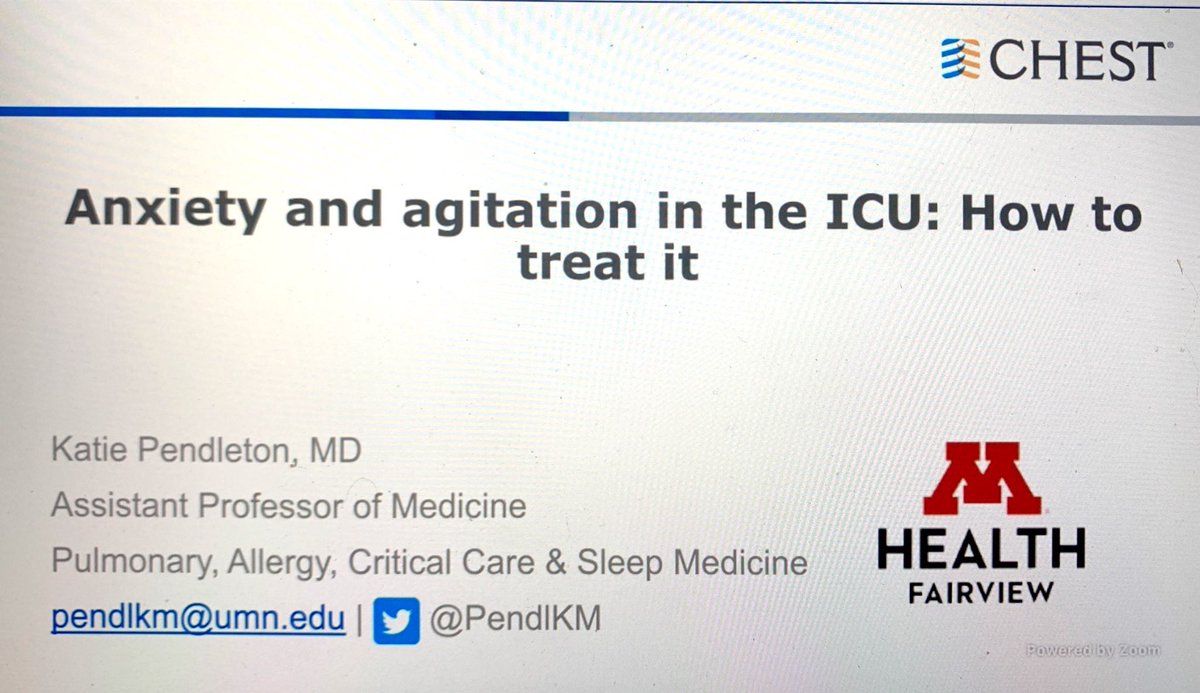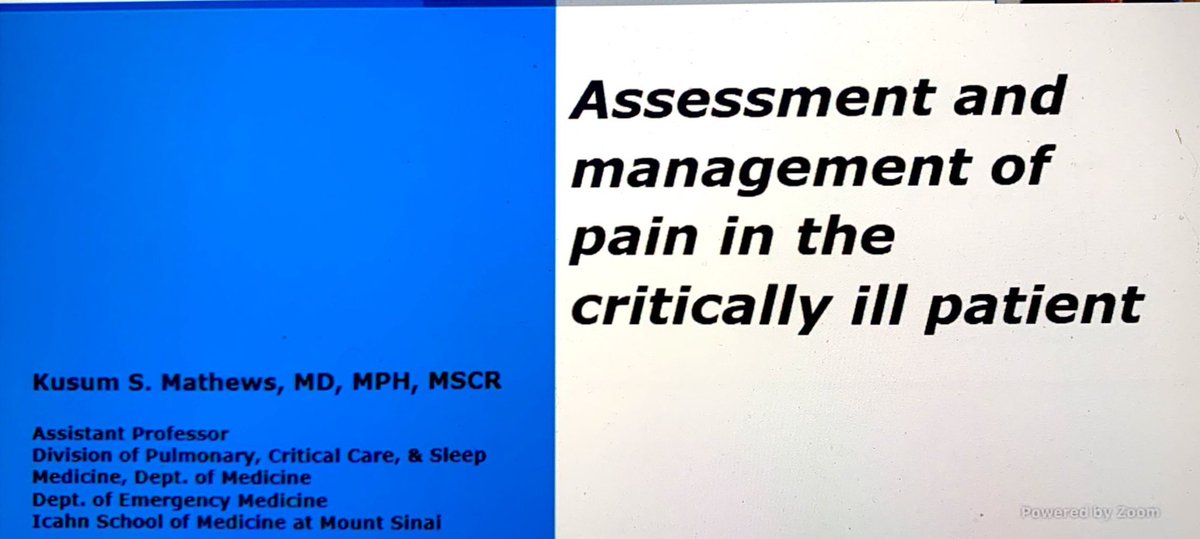
First up for today’s #CHEST2020 Tweetucation is “Asthma: Mechanisms and Management” which I am co-moderating with the one and only Dr. Andrew Berman (@pulmonary_O2)!
The first presentation is on "IL-13 augments histone demethylase JMJD2B/KDM4B expression levels, activity and nuclear translocation in airway fibroblasts in asthma." with Khuloud Bajbouj (@kbajbouj)! #CHEST2020 

This study aimed to explore IL-13's role in airway tissue remodeling and fibrosis in severe asthma. #CHEST2020 

Bioinformatics analysis revealed that histone demethylase JMJD2B/KDM4B was differently expressed in diseased lung fibroblasts. #CHEST2020 

The epigenetic regulation of asthma has been emerging in the last few decades helping us to understand more about asthma regulation. #CHEST2020 

It was found that JMJD2B/KDM4B levels were higher in asthma fibroblasts than healthy ones. #CHEST2020 

When cells were stimulated they had an increase in JMJD2B/KDM4B activity evident by a demethylation of H3K9me3. #CHEST2020 

The nuclear translation of JMJD2B/KDM4B was stimulated by IL-13. #CHEST2020 
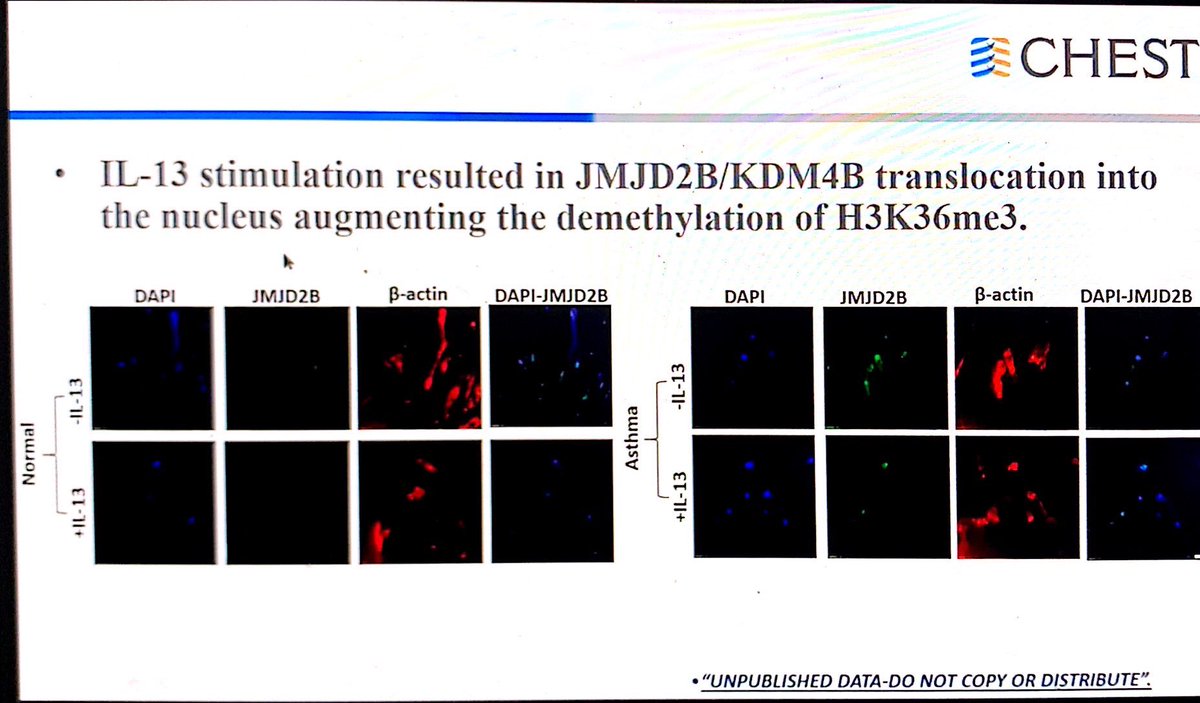
Conclusions #CHEST2020 

The next presentation is on "The Correlation of Fractional Exhaled NO Level with the Absolute Eosinophil Count and Level of Bronchial Asthma Control: A Prospective Cross-Sectional Study." by Dr. Jamaica Ross B. David! #CHEST2020 

Asthma is associated with higher exhaled NO and blood eosinophils. #CHEST2020 

This study aimed to determine the correlation between fractional exhaled NO levels and blood eosinophil count with asthma control. #CHEST2020 

Study methods #CHEST2020 



Older age groups had the tendency to develop uncontrolled asthma. #CHEST2020 

This study found that single elevated exhaled NO measurements were strongly predictive of a diagnosis of asthma, and their study agreed with that finding. #CHEST2020 





They found that FeNO levels of >41 ppb predicted uncontrolled asthma. #CHEST2020 


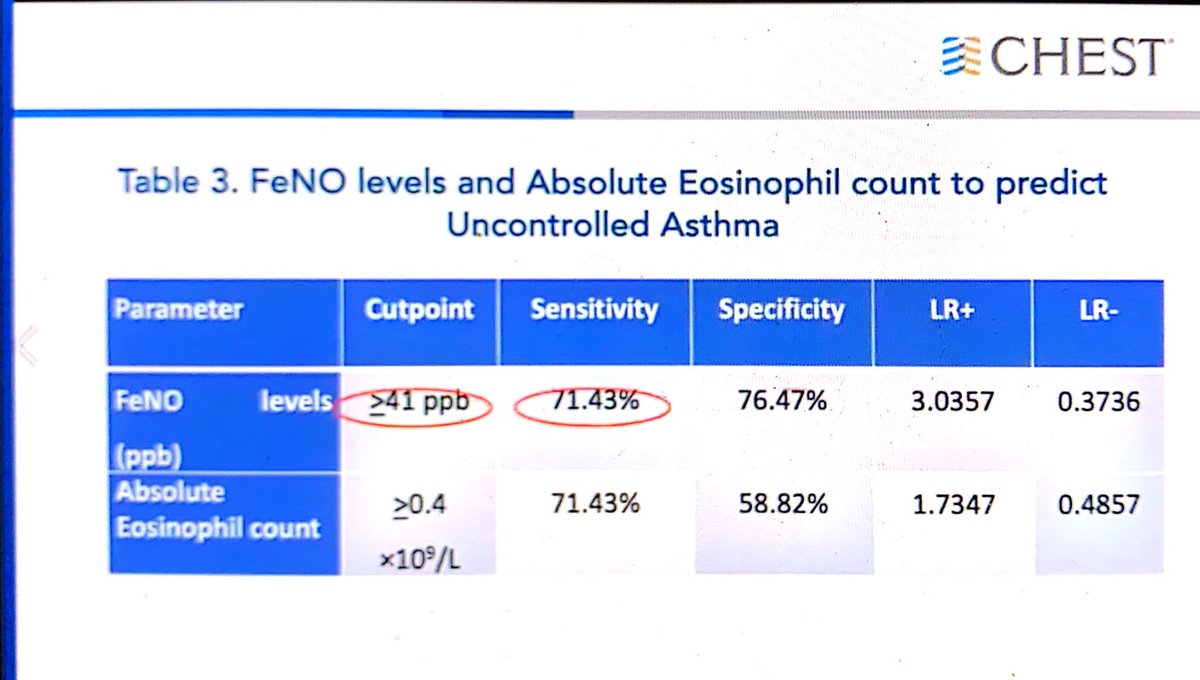


Conclusions #CHEST2020 

The next session is "Association Between Asthma Severity, Health-Related Quality of Life, and Productivity in France, Germany, Italy, Spain, and the UK" with Imene Gouia! #CHEST2020 

Introduction #CHEST2020 

This study aimed to evaluate the association between asthma and HRQOL, overall health status, and productivity and activity impairment. #CHEST2020 

Methods #CHEST2020 



The demographics of asthma patients and controls were comparable. #CHEST2020 

Significantly greater proportions of asthma patients self-reported comorbidities. #CHEST2020 

HRQOL was significantly worse for asthma patients. #CHEST2020 

Overall health status was significantly worse for asthma patients. #CHEST2020 

Productivity and activity impairments were significantly worse for asthma patients. #CHEST2020 

HRQOL, overall health status, and productivity and activity impairments were all worse for patients with moderate or severe asthma than those with mild asthma. #CHEST2020 





Mean differences in outcome scores remained statistically significant after adjustment for covariates. #CHEST2020 

Conclusions #CHEST2020 

Next up we have "Benralizumab Reduces Exacerbations for Patients with OCS-Dependent Severe Asthma Regardless of Early Improvement in FEV1" with Njira Lugogo (@DocLugogo)! #CHEST2020 

Study design #CHEST2020 

Their objective was to evaluate the efficacy of benralizumab in reducing AER and OCS for patients with and without early, clinically meaningful improvements above baseline in pre-bronchodilator FEV1. #CHEST2020 

Baseline characteristics were not different. #CHEST2020 

Patients treated with benralizumab had a higher proportion reaching the goal FEV1 improvement, but there was a placebo effect as well. #CHEST2020 

They had the same finding in patients with high eosinophils. #CHEST2020 

Benralizumab reduced exacerbations, including in patients with high eosinophils. #CHEST2020 



OCS reductions were higher in patients treated with benralizumab, including in those with higher eosinophils. #CHEST2020 

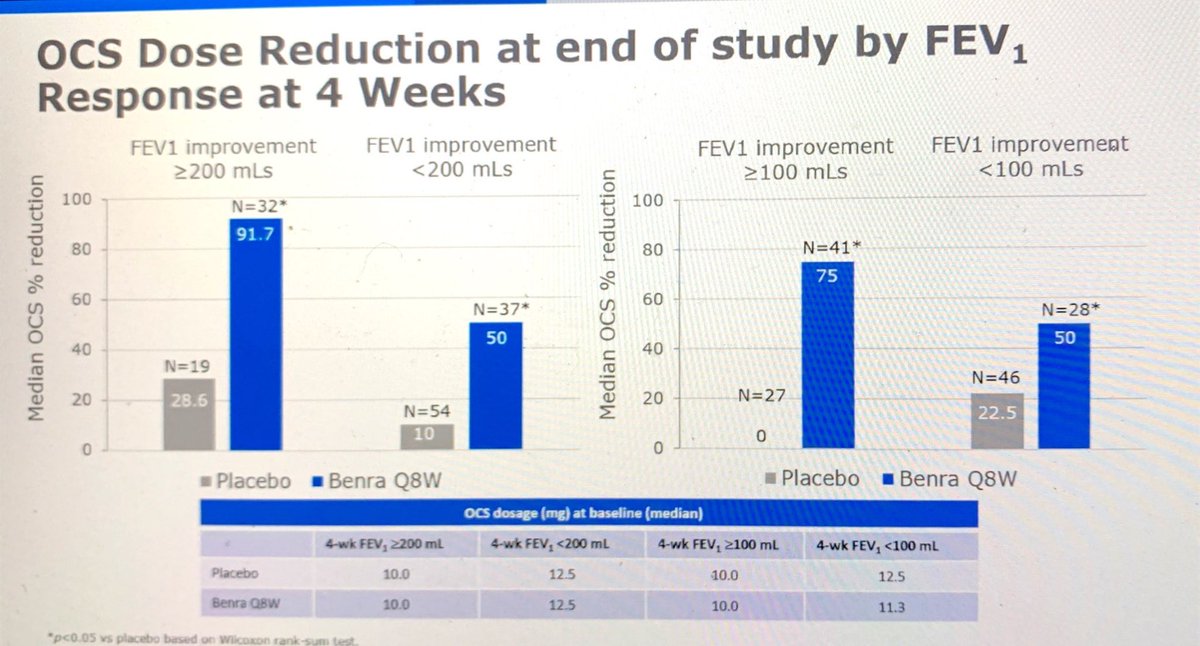

Conclusions #CHEST2020 

Thanks to all of our fantastic speakers in this asthma session! #CHEST2020
• • •
Missing some Tweet in this thread? You can try to
force a refresh







